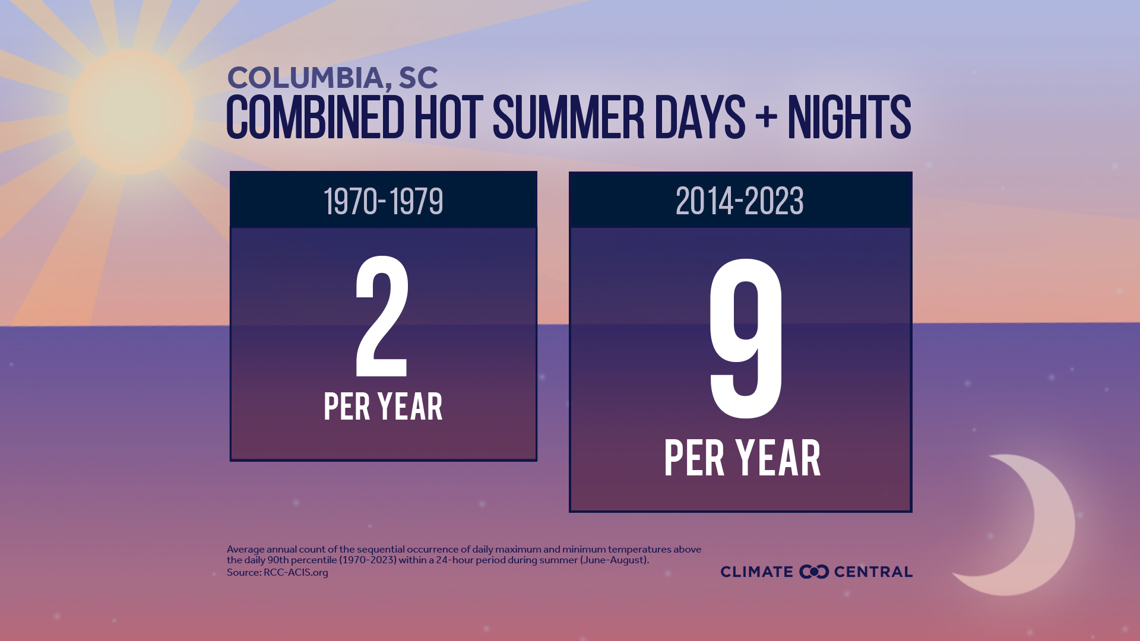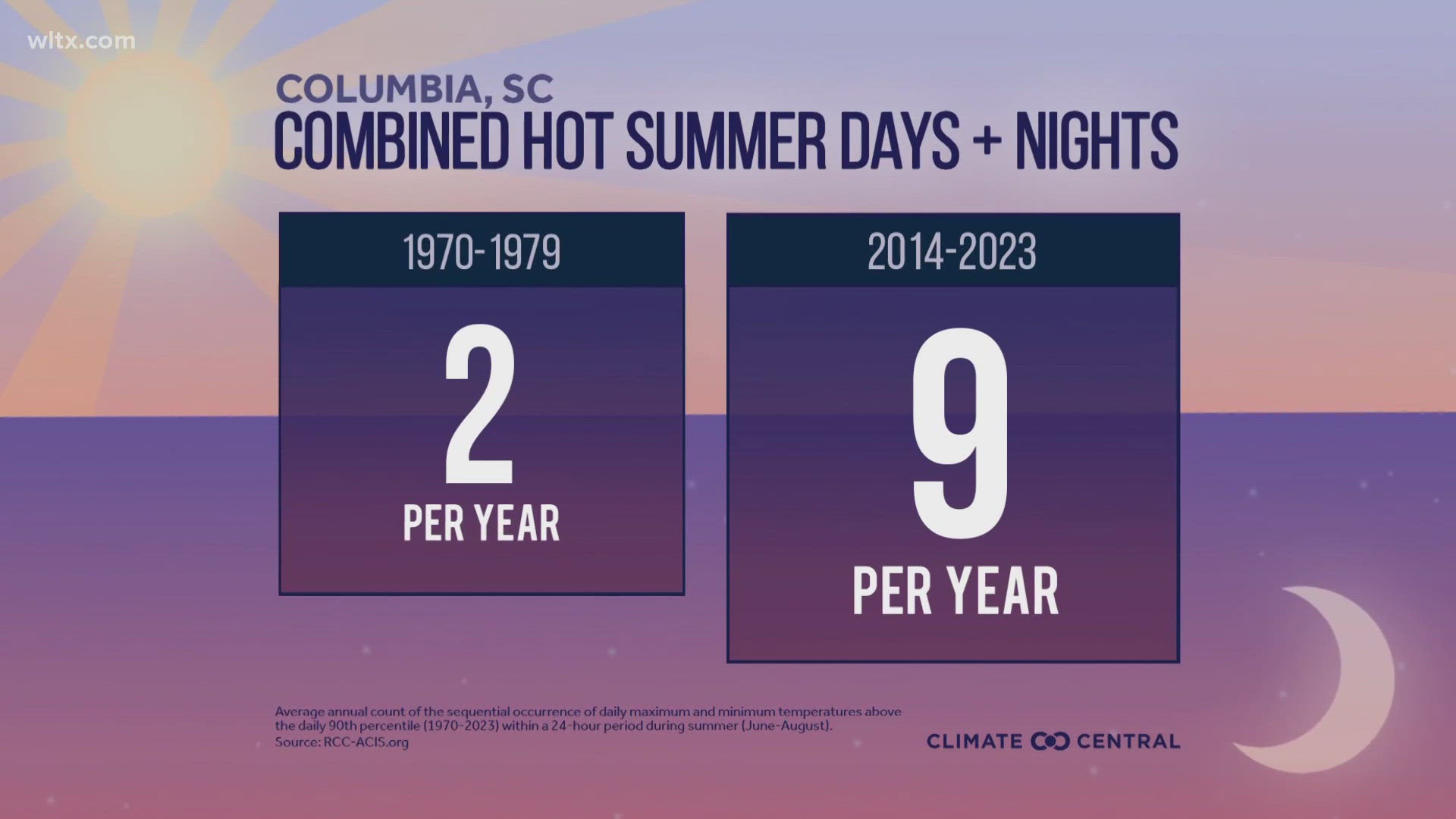COLUMBIA, S.C. — Climate Central analyzed 230 U.S. locations, including the Columbia area. Researchers found that summer nights have warmed on average by three degrees since 1970.
This might not sound like much, but our bodies don't get to cool down when temperatures stay warm, even after the sun goes down. A 2022 study shows this can prolong heat stress and reduce sleep.
Between 1970 and 1979, Climate Central found that the Columbia area experienced, on average, two summer days with maximum and minimum temperatures above the 90th percentile. If we compare this data to 2014-2023, our area saw an average of nine 24-hour periods with temperatures above the 90th percentile.


As temperatures rise, more moisture evaporates from the land surface. A warmer atmosphere can hold more moisture, leading to higher humidity and more cloud cover, says Climate Central.
Clouds can block some of the sun's warmth during the day, but they can trap it at night.

